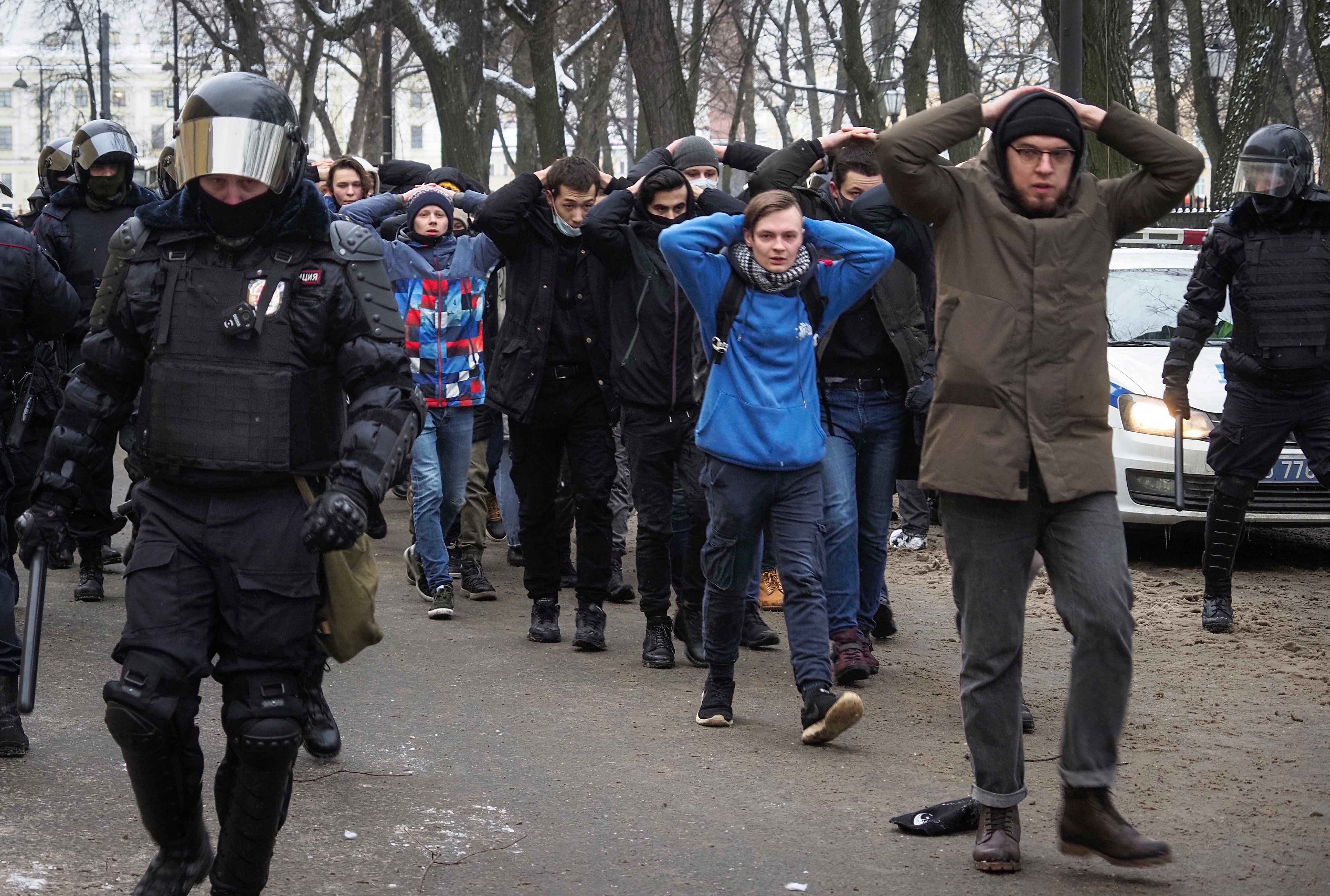Russia: Repression Escalates

(Moscow) – Russian authorities unleashed a full-fledged witch hunt on civic groups, independent media and journalists, political opposition and other critics in the run-up to the parliamentary election in September 2021, Human Rights Watch said today in its World Report 2022. The actions decimated civil society and forced many activists, journalists, and human rights lawyers into an exile.
The need to demonstrate solidarity with and provide meaningful support to human rights defenders in Russia has rarely been so pressing. “In the past year, Russian authorities doubled down on crushing dissent,” said Hugh Williamson, Europe and Central Asia director at Human Rights Watch. “The Kremlin’s attack on civil society is vicious and cynical and has gone as far as accusing the country’s leading human rights group of violating key human rights treaties and designating peaceful political opposition and anti-corruption groups as “extremist.” In the 752-page World Report 2022, its 32nd edition, Human Rights Watch reviews human rights practices in nearly 100 countries. Executive Director Kenneth Roth challenges the conventional wisdom that autocracy is ascendent. In country after country, large numbers of people have recently taken to the streets, even at the risk of being arrested or shot, showing that the appeal of democracy remains strong. Meanwhile, autocrats are finding it more difficult to manipulate elections in their favor. Still, he says, democratic leaders must do a better job of meeting national and global challenges and of making sure that democracy delivers on its promised dividends. Since November 2020, parliament has adopted a swarm of highly controversial legislative amendments, drastically expanding the applicability of the “foreign agents” and “undesirables” laws, further curbing already severely restricted freedom of assembly, encroaching on privacy and free expression online, and giving authorities broader grounds to put activists behind bars. In 2021, Russian authorities continued to employ a variety of tools to harass, intimidate, and disrupt the work of human rights defenders, including expelling or forcing several prominent human rights defenders to leave the country. In December, courts ruled to close Memorial, a human rights giant and one of Russia’s oldest rights groups, in liquation lawsuits against International Memorial Society and the Memorial Human Rights Center filed by the prosecutors in November. Earlier, a prominent human rights lawyer, Ivan Pavlov, had to announce the closure of his human rights group, Team 29, and leave the country after the authorities tried to disbar him, placed restrictions on his activities, and listed him and four of his colleagues as foreign agents. Two other human rights lawyers, Vanessa Kogan and Valentina Chupik, both foreign nationals and heads of human rights groups that worked on international human rights litigation and legal aid to migrants respectively, were expelled from the country on dubious grounds. In December, authorities blocked the website of the human rights group OVD-INFO, designated a “foreign agent” earlier in the year. Following Alexei Navalny’s return to the country in January after near-fatal poisoning in August 2020 and treatment in Germany, he was arrested, tried, and imprisoned. Around the same time his team released anti-corruption investigation videos implicating President Vladimir Putin. This sparked a series of massive, yet largely peaceful countrywide protests in January, February, and April. Police responded with violence and detained thousands of protesters, culminating in several criminal cases and forcing many of Navalny’s supporters and aides to flee the country.
The authorities have used Covid-19 as a pretext for blanket bans on public assemblies and prosecuted the perceived organizers and participants for noncompliance. In a clear demonstration of double standards, the authorities continued to hold massive pro-government or state-sponsored events.
The crackdown also targeted social media companies, escalating pressure on them to censor online content related to protests and the so-called “Smart Voting” project.
The project aimed at coordinating opposition votes to maximize the chances of candidates who were running against those from the ruling party in the 2021 general election. Government agencies also censored online critics by misusing their authority to block online content.
The authorities attacked the few remaining independent media outlets and journalists, including opening criminal cases against journalists on dubious charges, prompting some outlets to close or individuals to leave the country.
The number of organizations and individuals designated “foreign agent – foreign media” has increased almost eight-fold since December 2020.
The number of organizations blacklisted as “undesirable” continues to rise, as did the number of criminal cases against Russian activists for alleged involvement with such organizations. Andrey Pivovarov, the former head of Open Russia, remains in detention on these charges merely for a social media post. His trial began in November.
The authorities also abuse Russia’s overbroad counterterrorism and counterextremism laws to retaliate against opponents, dissenting voices, and religious minorities. Three organizations associated with Navalny were banned as “extremist” despite lack of any credible evidence that they were involved in, planned, or incited violence, and several of Navalny’s associates were arrested.
The authorities also prosecuted people accused of affiliation with religious organizations designated as “terrorist” or “extremist” although these groups have not espoused or been linked to violence. Leaked videos documenting torture in several prison facilities again stirred discussion about the prevalence of torture in Russia’s penitentiary system. In November, the head of the penitentiary service was dismissed and in December parliamentarians introduced a bill increasing the penalty for ill-treatment and adjusting its definition to bring it into line with international standards; but there has been no move for comprehensive reform to ensure prevention and effective investigations.
Read the full article at the original website
References:
